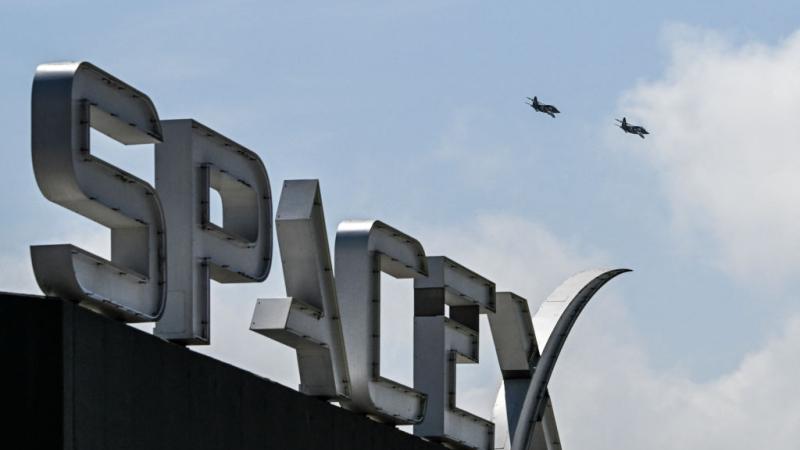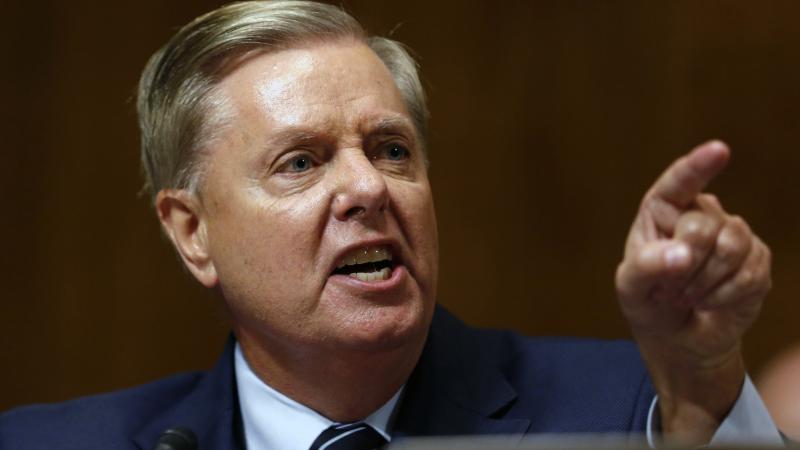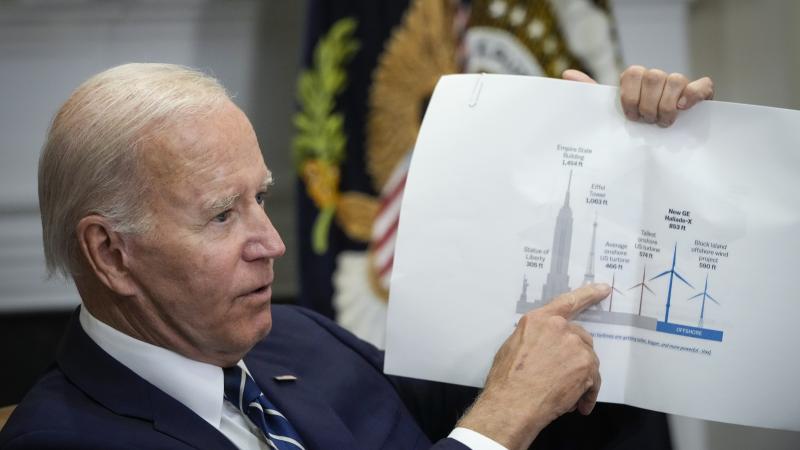Texas bill would ban gain-of-function research, fine violators, require leak mitigation plans
Public health watchdog praises bill as "possible model for other states." NIH accused of stonewalling release of docs including NIH-DARPA "self-spreading vaccines."
As state and federal institutions balk at the release of documents that could unveil a fuller picture of gain-of-function research preceding the emergence of COVID-19, a conservative Texas lawmaker is going on the offensive against such research in the Lone Star State.
Republican Sen. Bob Hall introduced legislation (SB 1583) that would prevent Texas institutions of higher education or those funded by taxpayers from conducting GoF research on "potentially pandemic pathogens" (PPP) or funding entities that do so. State funds would be revoked for violation.
Such research "is happening in our own backyard and I have heard there may be a direct connection with Wuhan and the COVID-19 virus," Hall said in a press release Monday, also citing "a concern that these viruses can also be mutated to create biological weapons."
Hall pointed to a recent Government Accountability Office report that found the security guidelines applied to GoF research, following a three-year pause that ended in 2017, didn't go far enough.
Former National Institute of Allergy and Infectious Diseases Director "Anthony Fauci himself evaded the moratorium," the release says, "because it applied to pathogens that were 'naturally occurring,' and after mutating certain pathogens, Fauci argued that they were no longer naturally occurring and thus no longer fell under the definition of prohibited research."
U.S. Right to Know Executive Director Gary Ruskin called Hall's bill a "possible model for other states." The nonprofit watchdog tracks public health legislation and has ongoing public records litigation against the National Institutes of Health and University of North Carolina related to GoF research.
While USRTK doesn't plan to formally advocate such state legislation, "our world would be a little bit safer place if Senator Hall's good bill were enacted," Ruskin told Just the News.
"Every legislator in every state should do the same," said Richard Ebright, lab director at Rutgers University's Waskman Institute of Microbiology and a vocal critic of federal health officials' claims about SARS-CoV-2 origins. He told Just the News it was the first such state legislation he'd seen.
The center-right American Legislative Exchange Council, which facilitates model legislation among state lawmakers, declined to comment on whether it was researching interest among members in similar legislation. Its liberal counterpart the National Conference of State Legislatures told Just the News it was checking.
Congress has been considering legislation short of a permanent ban since late 2021, when Republican senators proposed an indefinite "moratorium" on GoF research funding and bipartisan House members introduced a five-year "pause" bill.
Under Hall's bill, Texas entities that intend to research PPP — regardless of whether it involves state money — would have to tell the state 90 days in advance where it will be conducted, the scope and purpose, funding source, identity of the pathogen, including "strains or variant," the "potential impacts" if it escapes and measures the entities will take to prevent that.
Texas would inform federal and local authorities in turn, and failure to timely file such reports would carry a $50,000-100,000 fine per violation, with each day late a separate violation.
The legislation would empower the governor to prohibit the research and attorney general to seek an injunction, depending on the entity, if the state determines the research "poses a substantial and unjustifiable risk to public health and safety," capacity or security of the state.
Hall's bill defines GoF research as "reasonably ... anticipated to enhance the transmissibility or virulence of" PPP, which applies to pathogens that are "likely, moderately, or highly" transmissible or virulent and "likely capable of wide and uncontrollable spread in human populations" or causing "significant mortality and morbidity in human beings."
NIH has "no legal basis" for its continuing failure to "promptly release" records sought by USRTK in nine separate Freedom of Information Act requests related to pandemic research going back to fall 2020, Ruskin told the federal court in D.C. Thursday.
USRTK sent the agency "multiple emails and at least two formal requests per case for an estimated completion date" on the requests but was "mostly unsuccessful," Ruskin wrote, claiming NIH could fulfill the requests in six months on a 4,000-page monthly production schedule.
Among other subjects, the requests asked about: work by NIH's Rocky Mountain Laboratories funded by the Defense Advanced Research Projects Agency "to create self-spreading vaccines that aim to pre-empt spillover from bat populations to human populations"; NIH's knowledge of the World Health Organization's investigation into COVID origins; and NIAID Deputy Clinical Director Clifford Lane's communications with the Wuhan Institute of Virology, its U.S. partner EcoHealth Alliance and specific government officials, professors and experts involved with the WHO investigation. EcoHealth comes up repeatedly in the requests.
The agency belatedly dumped 1,260 pages responding to one FOIA request Feb. 27 and another 6,698 pages March 6, both of which resemble earlier productions to The Intercept and BuzzFeed, Ruskin said.
Neither appears to be responsive to USRTK's requests because NIH's Jan. 3 and March 6 status reports both "identified 22,041 potentially responsive pages" related to the litigation, and the latter includes published articles that USRTK specifically told NIH not to produce, Ruskin said. The timing suggests NIH simply wanted to claim "it had released records."
NIH didn't answer Just the News queries for its response.
Earlier this month, UNC responded to USRTK's state lawsuit for records related to its virologist Ralph Baric and his work with the Wuhan lab on alleged GoF research, many of which were withheld under what USRTK calls an "overly broad interpretation" of a research exemption.
The university claimed the sought records are largely outside the scope of North Carolina public records law, if it even owns them, and the lawsuit itself is barred at least in part by sovereign and qualified immunity. UNC asked for dismissal with prejudice and that the costs of litigation be "taxed against USRTK."
The Facts Inside Our Reporter's Notebook
Links
- SB 1583
- recent Government Accountability Office report
- Gary Ruskin called Hall's bill a "possible model
- Richard Ebright
- Republican senators proposed an indefinite "moratorium"
- bipartisan House members introduced a five-year "pause" bill
- Ruskin told the federal court in D.C.
- Ralph Baric and his work with the Wuhan lab
- USRTK calls an "overly broad interpretation"















